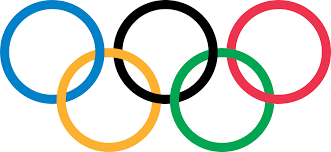The Olympic Games: A Journey Through Time

The Olympic Games, a testament to human excellence and unity, have a storied history that spans millennia. Let us embark on a journey through time, from ancient Greece to the modern global spectacle.
1. Ancient Origins
The roots of the Olympics trace back around 3,000 years to the Peloponnese region in Ancient Greece. These early sports contests, held at Olympia, occurred every four years and were dedicated to Zeus, the king of gods. The name “Olympics” itself is derived from Mount Olympus, believed to be the abode of Greek deities.
2. The Ancient Olympic Games
From 776 BCE to approximately 393 CE, the ancient Olympic Games captivated participants and spectators alike. These quadrennial events celebrated physical prowess, camaraderie, and devotion to the gods. Athletes competed in disciplines such as running, wrestling, chariot racing, and discus throw. The victors received olive wreaths—a symbol of honor and glory.
3. The Revival: Modern Olympic Games
In the late 19th century, Baron Pierre de Coubertin rekindled the Olympic flame. In 1896, Athens hosted the first modern Olympic Games, marking a historic moment. Athletes from various nations converged to compete in track and field, gymnastics, swimming, and more. The International Olympic Committee (IOC) was born, becoming the governing body of the Olympic Movement.
4. Evolution and Adaptation
The 20th and 21st centuries witnessed significant changes:
- Winter Olympics: The creation of the Winter Olympic Games expanded the scope to snow and ice sports.
- Paralympics: Athletes with disabilities found their stage in the Paralympic Games.
- Youth Olympics: Young talents aged 14 to 18 now participate in the Youth Olympic Games.
- Continental Games: Pan American, African, Asian, European, and Pacific Games celebrate regional excellence.
- World Games: Sports not contested in the Olympics find a home in the World Games.
- Adaptations: Economic, political, and technological shifts prompted adjustments, including the acceptance of professional athletes.
5. Trials and Triumphs
The Olympics weathered storms:
- World Wars: The 1916, 1940, and 1944 Games fell victim to global conflicts.
- Cold War Boycotts: The 1980 and 1984 Olympics saw limited participation due to geopolitical tensions.
- COVID-19 Pandemic: The 2020 Olympics were postponed to 2021, emphasizing resilience.
6. The Olympic Movement
The IOC, international sports federations, and National Olympic Committees collaborate to choose host cities, organize, and fund each Games. Corporate sponsorship and mass media have shaped the modern Olympics, making them a global phenomenon.
As we anticipate the 2024 Summer Olympics in Paris, let us celebrate the spirit of athleticism, unity, and the enduring legacy of the Games. 🏅🌟
